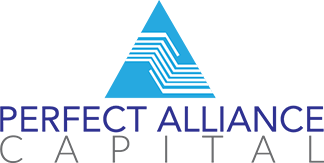When it comes to financing your small business, understanding your loan options is crucial. Among the many options available, you’ll often hear two terms consistently pop up: installment loans and revolving credit. But what exactly do these terms mean, and more importantly, which one is right for your business needs?
This blog breaks down the differences between installment loans and revolving credit to help you make an informed decision and successfully grow your business.
What Is an Installment Loan?
An installment loan provides you with a lump sum of money upfront, which you then repay in fixed installments over a set period, alongside any accrued interest. These loans are common for specific, larger expenses, such as purchasing equipment or expanding office space.
Pros of Installment Loans
- Access to Larger Sums: You receive a significant amount upfront, allowing you to fund big projects or investments.
- Predictable Payments: Fixed monthly payments make budgeting easier.
- Builds Credit: Timely payments can strengthen your business credit.
Cons of Installment Loans
- Borrowing Limits: You may borrow either more than you need or less than expected, as the amount is fixed upfront.
- Risk of Asset Loss: For secured loans, defaulting could result in losing collateral like property or equipment.
- Fees and Costs: Origination fees or early repayment penalties may apply.
What Is Revolving Credit?
Revolving credit operates differently. Instead of receiving a one-time payment, you’re approved for a maximum credit limit. You can borrow and repay against this limit multiple times, as long as you don’t exceed the cap. Think of it as a reusable form of credit rather than a one-time loan.
Pros of Revolving Credit
- Flexible Access: Funds can be accessed as needed, offering adaptability during changing business needs.
- Lower Initial Costs: You only pay interest on the funds you actually use.
- Versatility: Funds can cover a range of expenses, from inventory to day-to-day operational costs.
Cons of Revolving Credit
- Higher Interest Rates: Rates are typically variable and often higher than installment loans.
- Qualification Challenges: Lenders may have stricter requirements based on credit scores or business health.
- Risk of Overspending: Businesses can be tempted to borrow more than they can comfortably repay.
Installment Loan vs. Revolving Credit: Key Differences
To decide which option works best, it helps to directly compare their key features:
| Feature | Installment Loan | Revolving Credit |
| Interest Type | Fixed or variable | Often variable, based on market rates |
| Payout Structure | Lump sum payment upfront | Access funds as needed |
| Loan Limit | One-time fixed amount | Maximum credit limit, reusable |
| Renewability | May not be renewable | Continual access as long as payments are made |
When Should You Use an Installment Loan vs. Revolving Credit?
Choosing between these two options depends largely on your business needs. Here’s when to opt for each:
Installment Loan
Ideal for financing significant, one-time expenses such as:
- Purchasing capital equipment
- Making large inventory investments
- Remodeling or expanding office spaces
An installment loan’s predictable monthly payments make it easier to budget, especially for businesses planning long-term investments.
Revolving Credit
Best suited for ongoing needs or when flexibility is essential, such as:
- Covering cash flow gaps during slow seasons
- Accessing emergency funds
- Managing smaller, recurring expenses like stock replenishment
Revolving credit is a great tool for businesses seeking agile financing without committing to a larger, fixed loan amount.
Using Both for Maximum Growth
Many business owners successfully combine installment loans for their larger, fixed investments and revolving credit for everyday operational flexibility. This hybrid approach ensures they’re prepared for both planned and unexpected expenses.
How to Choose the Right Option for Your Business
When deciding between an installment loan and revolving credit, ask yourself:
- What’s the Purpose? Determine if you need financing for one major purchase (installment loan) or flexible access to funds over time (revolving credit).
- What’s Your Budget? Understanding repayment terms and anticipating cash flow challenges can help you choose effectively.
- Do You Meet the Requirements? Each lender sets different criteria based on credit scores, business history, and revenue.
Get Help With Loan Options for Your Small Business
Understanding whether your loan falls under installment or revolving credit is just the first step toward securing the right funding for your business. It’s just as important to work with lenders who understand your unique goals and challenges.
At Perfect Alliance Capital, we simplify the process of finding and applying for business loans. With flexible options, experienced loan advisors, and access to millions of dollars in funding, we’re here to help you succeed.
Take the next step today and grow your business on your terms. Apply now and speak with one of our Business Finance Advisors.



